Editor’s Note: What is it like being a female journalist in the Philippines, a country already among the most dangerous for media workers globally? How do female journalists deal with a populist president known for his misogynistic statements and hatred of critical press? Rappler managing editor Glenda Gloria and reporters Jodesz Gavilan and Pia Ranada offer their insights.
A decade ago, a military general met Glenda Gloria for an interview about turmoil happening in the Philippines. It was an ordinary day for Gloria, a journalist who had been covering the defence beat for over 10 years at that point. But to the general, it was an exciting day.
In the middle of the interview, he cut off Gloria and said: “I just came back from a trip. I have a gift for you,” before taking something out. “He showed me a pair of panties,” said Gloria, 54.
For a woman as strong as Gloria, she restrained herself and said nothing. It was the Philippines, such treatment of women in the media industry was considered “normal”. One either keeps it to herself or finds a strategic way of dealing with it, or else she risks losing her sources, her beat, or her job.
“In my time, both as a reporter and as a young news manager, it [sexism] was not a taboo. It was just assumed as normal. And so, the big difference is, we never talked about it,” Gloria said.
Gloria is the managing editor and co-founder of Rappler, an embattled news website that is besieged by at least 11 cases, including a closure order, for what are largely considered politically motivated charges following critical reporting on Philippine President Rodrigo Duterte.
Her journalism career began months before the 1986 revolution that ended the dictatorship of Ferdinand Marcos. Coup d’états and revolutions marked her career as a reporter until she became a newsroom manager for the broadcasting giant.
Duterte’s regime
Though the inequitable treatment of women in the Philippines has been a feature of her work since the 1980s, Gloria has refused to allow sexism get in the way of the news gathering process. But she says journalism has become an even more gendered issue for her under Duterte, the tough-talking former mayor of Davao in the southern Philippines, after his 2016 election victory.
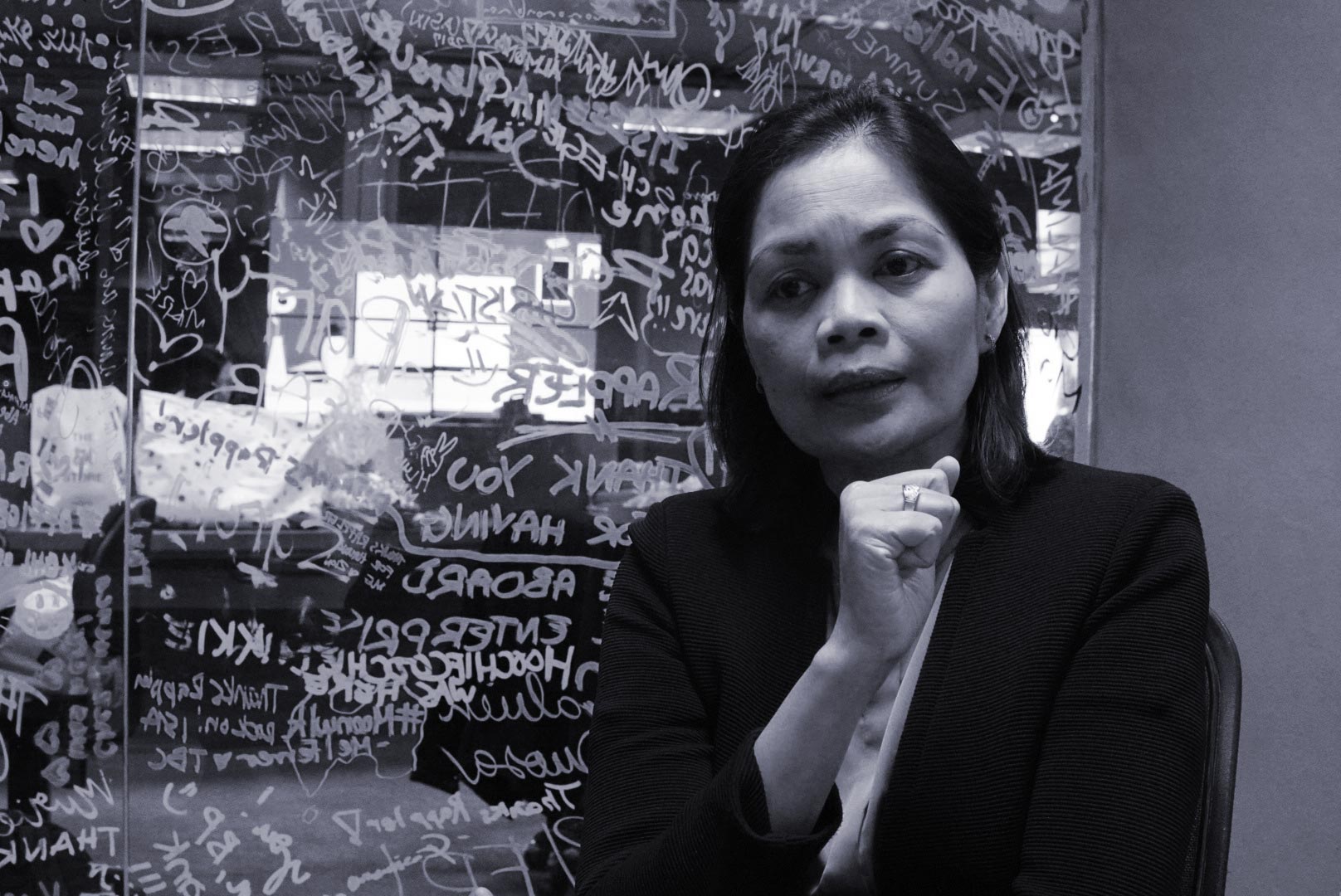
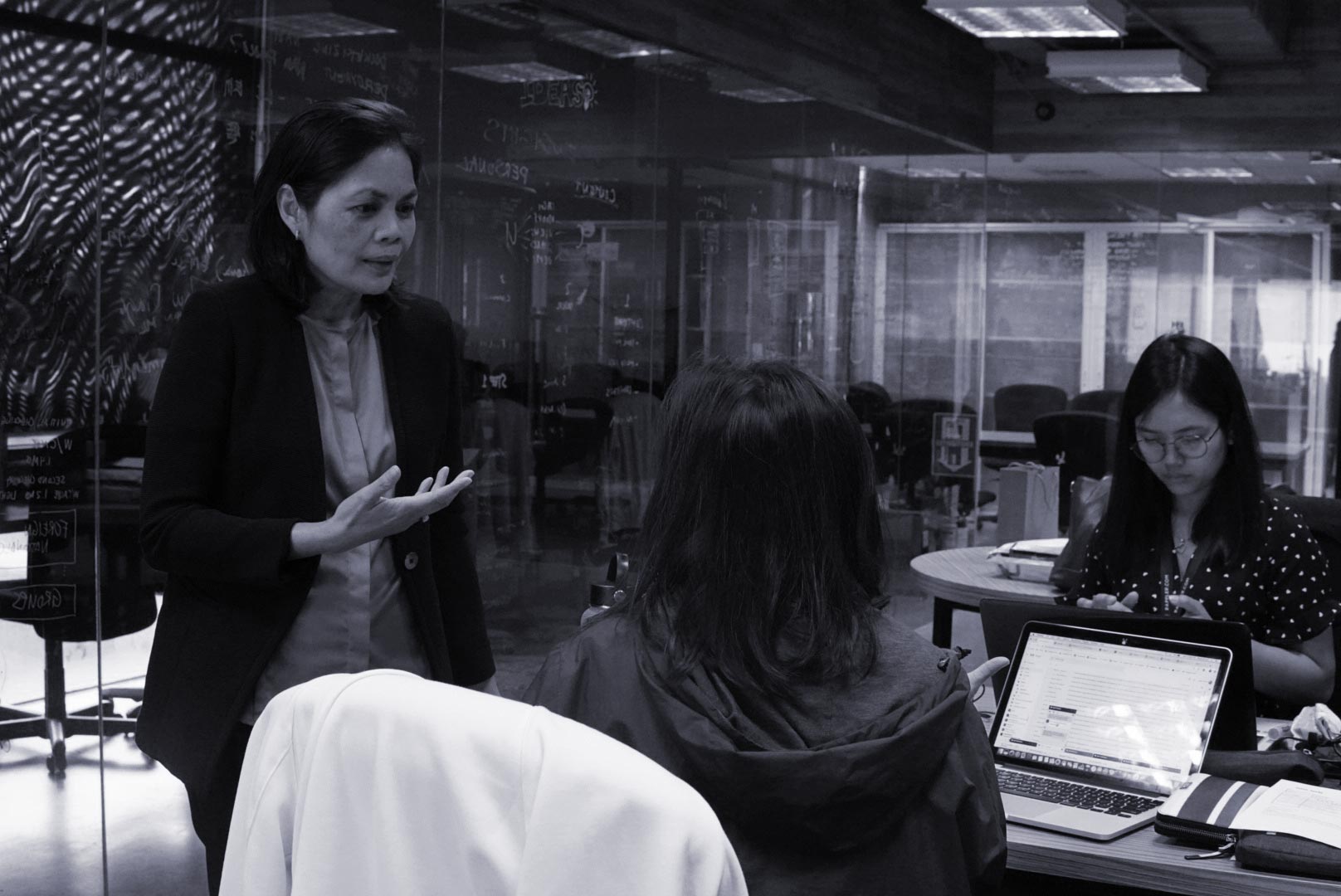
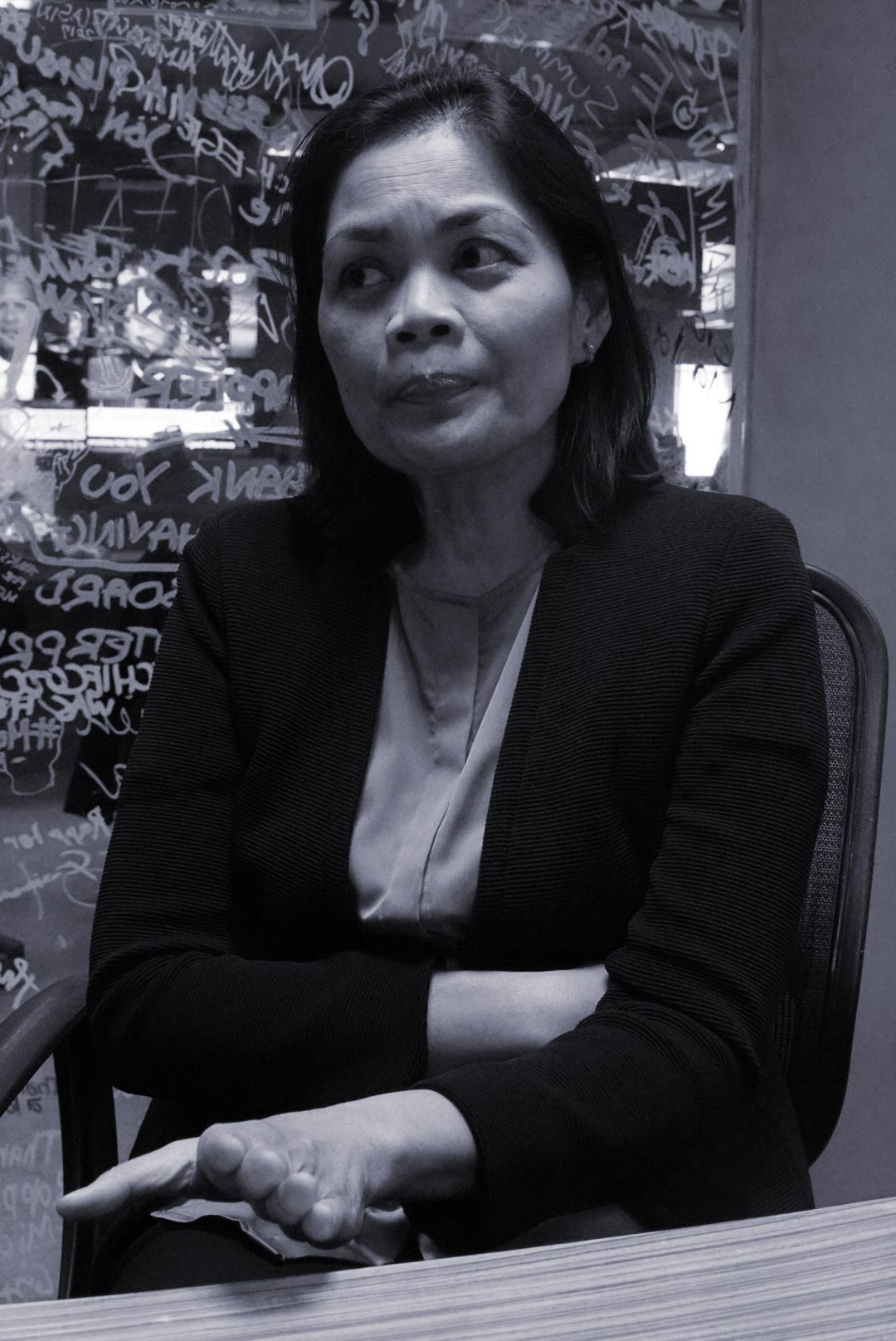
Being a female journalist has never been an issue to me before this administration … under this regime, you have a situation where the most powerful man in the country actually spews out very anti-female and misogynistic remarks
Glenda Gloria, Rappler managing editor
“Being a female journalist has never been an issue to me before this administration. Well it was to a certain extent. But under this regime, you have a situation where the most powerful man in the country actually spews out very anti-female and misogynistic remarks,” Gloria said.
Duterte’s way of treating female journalists has sparked criticism and indignation. In 2016, in a live press conference, he answered a female TV journalist’s question with a wolf whistle.
But his misogynistic remarks are not limited to members of the press. Once, Duterte encouraged soldiers to shoot female rebels in the vagina. And when he placed southern Philippines under Martial Law in 2017, Duterte vowed to protect soldiers if they rape women during house searches or while arresting suspects. While in 2018, Duterte said there would be rape cases as long as there were beautiful women.
Such despicable behaviour, Gloria said, “cascades down the bureaucracy”. And it’s the worst she has seen for the past 20 years.
“The kind of statement that the president chooses against women emboldens or maybe encourages unwittingly his lieutenants who head departments,” she said.
Cabinet secretaries and politicians were “more comfortable now” in catcalling and flirting with reporters in public events. And a number of Rappler journalists have found themselves fending off sexual advances instead of getting answers from their sources.
“It affects them tremendously because this is done in public spaces. I remember an instance, a few instances, wherein our reporter would ask questions in a press conference, and instead of responding to that question, the politician would say ‘you look nice in your new hair’ or ‘you look nice in your mini skirt,’” Gloria said.
Multimedia reporter Pia Ranada, 29, who has been covering Duterte since 2015, said the president treats male and female journalists differently. She was banned from covering the Office of the President after the security and exchange commission revoked Rappler’s closure.
“Everyone knows this, if you are pretty or you are a woman, Duterte has a way of talking to you. He’ll try to flatter you. Or he will comment on your appearance. Of course, if you were him, you would say that’s a compliment. But as a woman, you feel like you’re being reduced to your appearance, when you’re actually just there to do your job,” Ranada said.
It does not stop with the president or his men. The menace extends to pro-administration trolls online.
Ranada laments that credibility never matters when female journalists are heckled online. The accuracy of their work is a non-issue, with female journalists always reduced to their physical appearance. Their bodies, not their work, are questioned and ridiculed, she said.
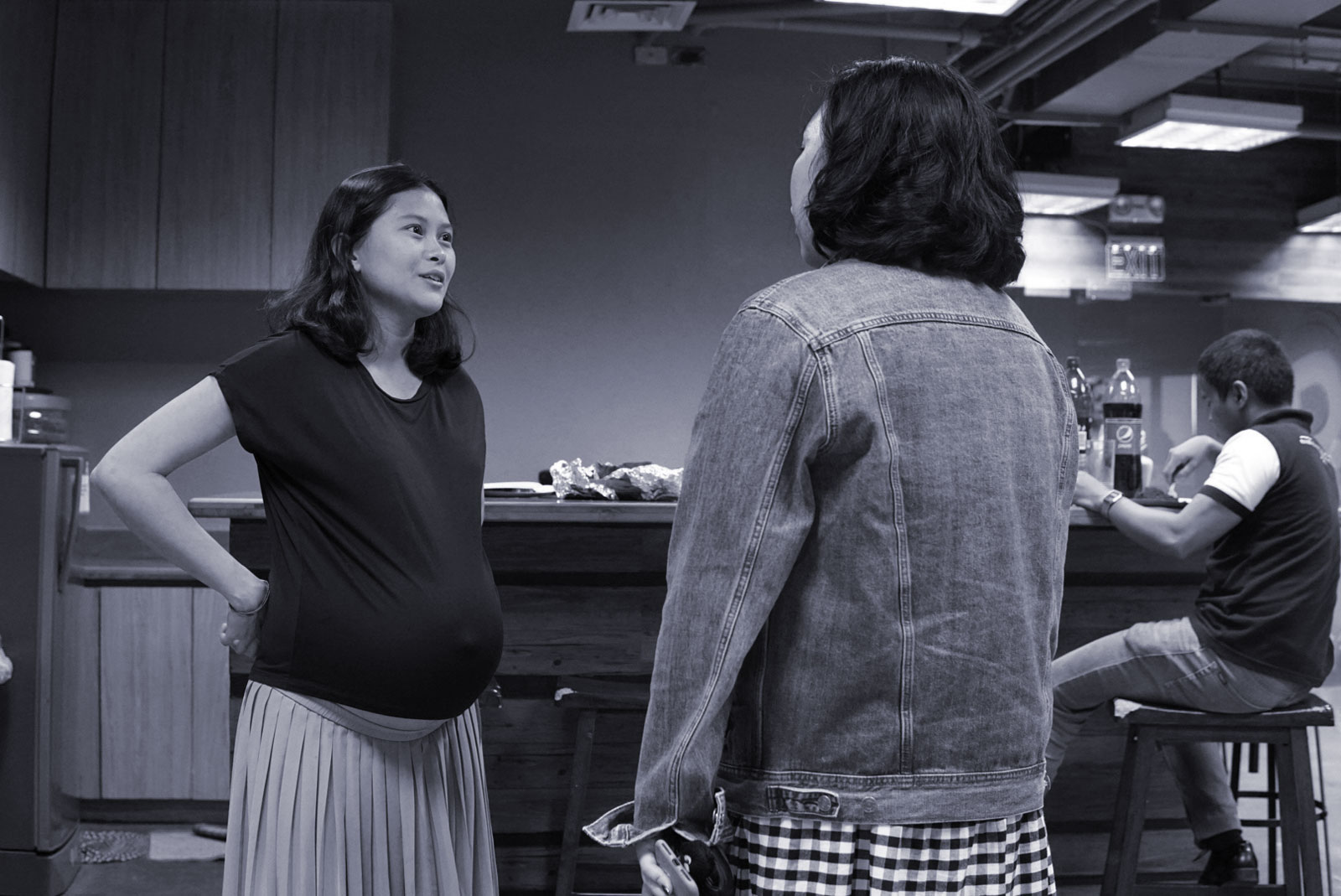
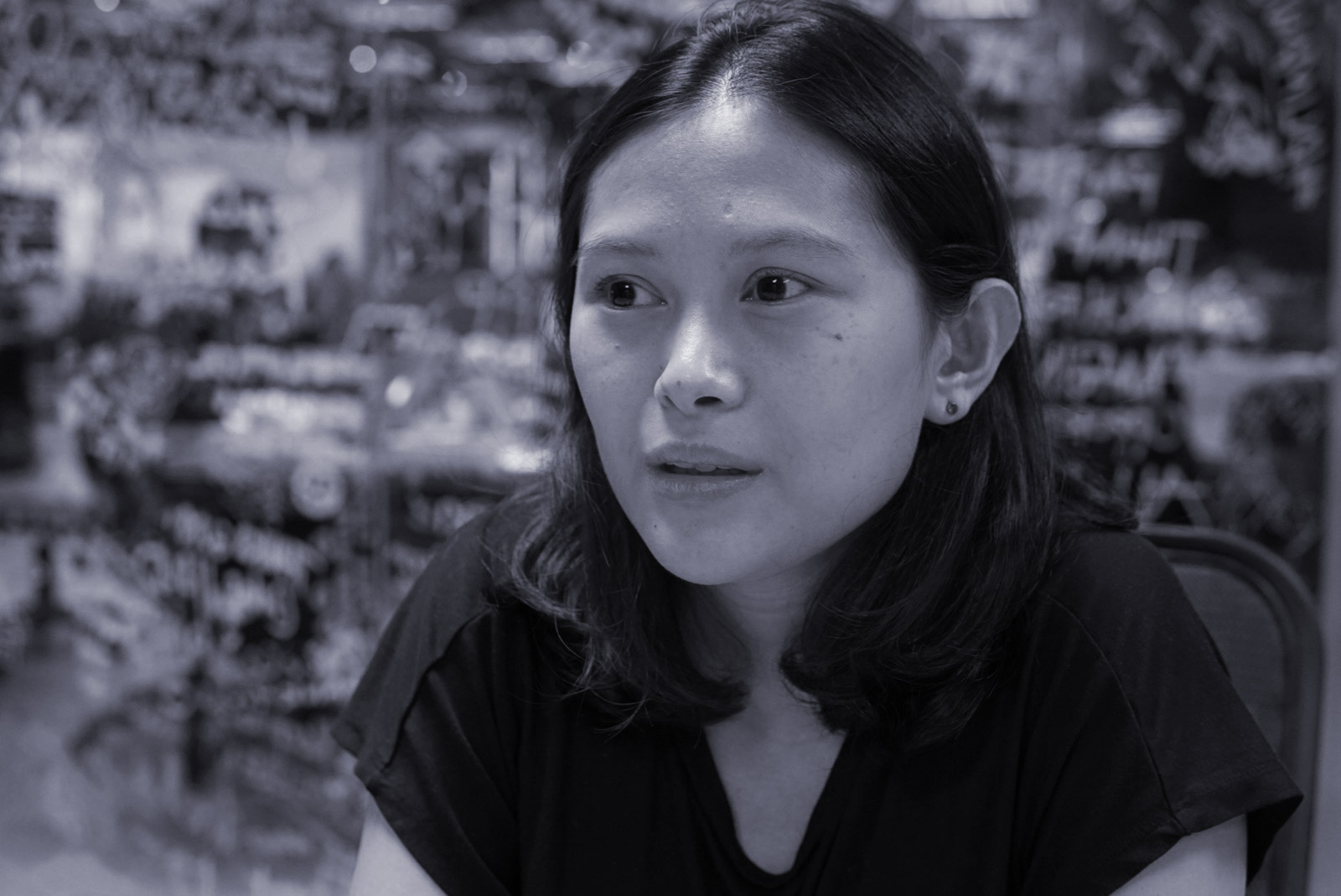
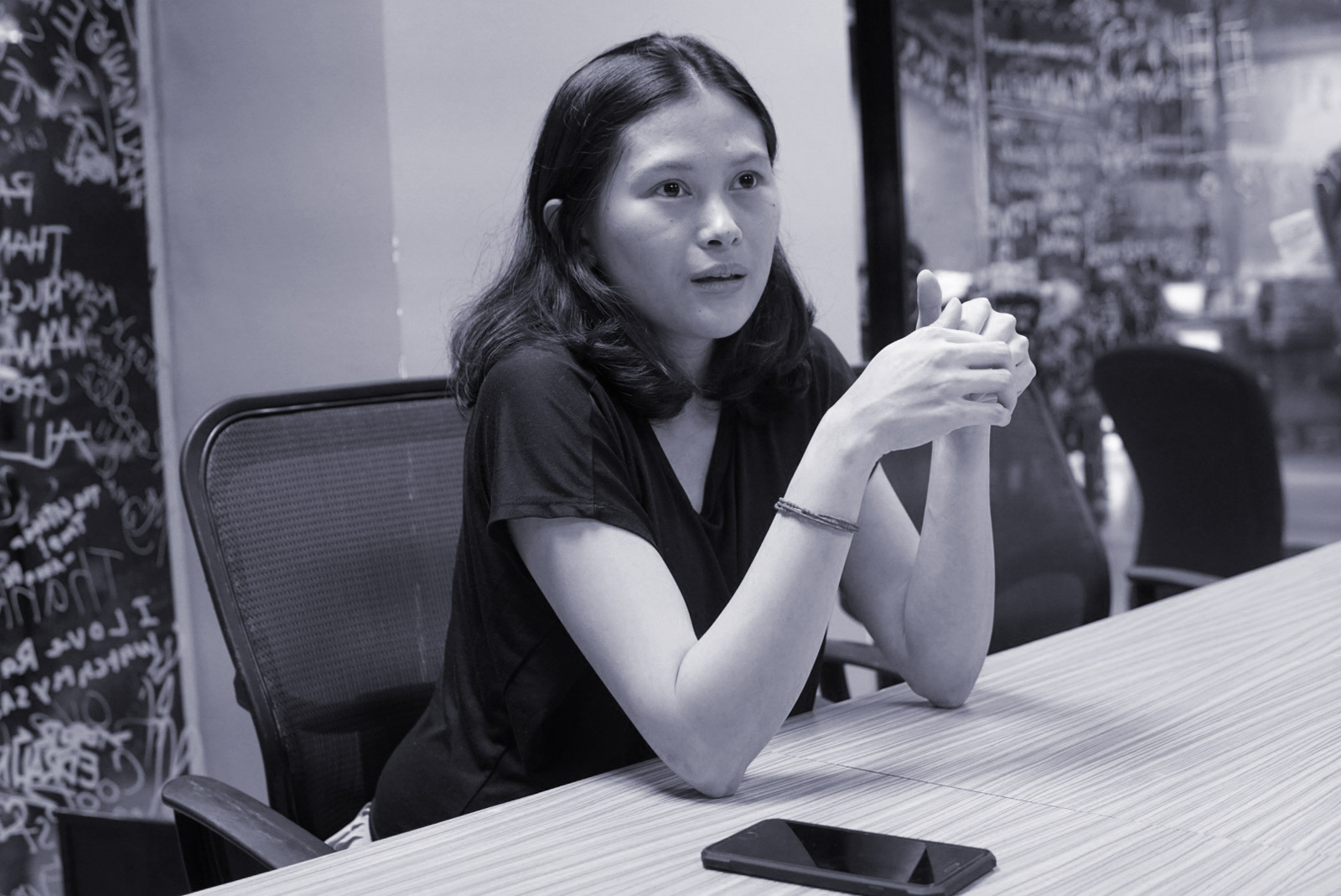
No matter how big Duterte can be, no matter how popular, or how much power he has, he doesn’t get to define who you are … so every article I write, everything I do as a journalist is my way of pushing back
Pia Ranada, Rappler reporter
Investigative reporter Jodesz Gavilan, 26, observed that when trolls or Duterte supporters attack men, the focus was on their intellect. Some trolls even went out of their way to stalk a male reporter’s LinkedIn account in order to punch holes in his credentials.
“That’s my main take away. They took time to check his LinkedIn. But for women, we’re already lucky if trolls know at least one of our past stories,” Gavilan said.
When women are attacked it’s either about their weight or about their breasts, Gavilan said, while they are also increasingly threatened with rape. While Gavilan, a journalist of six years, said online attacks were not new, what’s different under Duterte is that trolls have shifted their focus onto the female physique.
“It’s worst right now. I couldn’t remember if there were similar attacks in the past. Before, the attacks focused on one’s credibility – they [trolls] would say you’re a paid hack. Of course, that is still happening today. But not the rape threats, not the physical threats,” she said.
The Filipina journalist
Before the #MeToo movement gripped the world in late 2017, female journalists in the Philippines were mum about sexual advances made by bosses, sources or fellow journalists over fear of losing their jobs and contacts. They feared appearing weak and losing their beats.
“It was tough to navigate that because on the one hand some of the military officers would either patronise you and say ‘Oh, she’s a girl, she’s like my daughter.’ On the other, they will verbally harass you and say ‘you’re nice, do you have a boyfriend?’ That came day-to-day. It almost became a norm to me. Because there was no conversation about it, I kept it to myself,” Gloria said.
“Like when an officer would say, ‘why aren’t you married?’ I thought it was normal. Because there was no conversation [about sexual harassment]. And the newsrooms then were dominated by men,” she added.
A woman’s capacity to deliver news was also judged based on her gender. Gloria said during the 80s, female journalists like Shiela Coronel, Malou Mangahas, and Maritess Vitug – whose work helped topple the Marcos dictatorship in 1986 – were revered and respected. However, despite demonstrating their fearless credentials under dictatorship, some male editors rejected the idea of assigning female reporters areas such as the police beat for fear they weren’t prepared.
“I remember one of my former editors – no female reporter was ever assigned to the police beat under his watch because he said the female reporter could not handle [it],” she said.
And in the field, Gloria said, should a female reporter out-scoop a competitor, they receive accusations of flirting their way to the story, rather than getting accolades and congratulations. These things made it extra difficult for her to cover the military as a rookie.
“Even among your peers, because you’re outscooping them, you would be seen like ‘Ah! Maybe because she’s a girlfriend [of the source].’ It’s not because you’re good at what you do,” Gloria said.
“That was a tough time for me covering the defence beat. It was both the best years of my life as a reporter and the worst.”
Inside the newsroom was a different battle. A colleague of hers filed a sexual harassment case against an editor and it was never resolved. The victim eventually left the paper, and her attacker remained editor until he died.
But at Rappler, it’s a different story. The outlet, founded in 2012 and among the most critical of the Philippine government, is run and managed by mostly female editors, with more than 60% of its staff women. This results in a familial bond, which, according to Gavilan, hones the skills of aspiring journalists with “motherly love” that is tough and kind.
Wanting to change the culture of silence that permeates local journalism, Rappler ensured that there was an open line of communication where the staff could discuss their concerns, especially sexual harassment issues. Reporters are empowered and armed with their rights, and they are encouraged to report any attempt to harass or bribe them by sources and officials.
Courageous journalism
In 2017, Rappler earned the ire of President Duterte for its critical reports on his administration, particularly on his bloody war on drugs. Rappler also exposed how trolls flooded social media with pro-Duterte propaganda. Duterte expressed his dismay at the outlet through his second state of the nation address (SONA) that year, and accused the online company of being “fully owned by Americans”.
“The Philippine Constitution requires that media ownership should be 100% Filipino. Rappler, try to pierce the identity and you will end up with American ownership,” Duterte said.
Since then the news website has been slapped with a slew of cases, including a closure order and multiple tax evasion cases. As of present, Rappler is facing 11 cases, all of which were filed in a span of 14 months, five months after Duterte’s 2017 SONA.
Most of them are awaiting resolution. Nine of them were court cases filed against Rappler CEO Maria Ressa, as well as the website’s directors, including Gloria, and a former researcher.
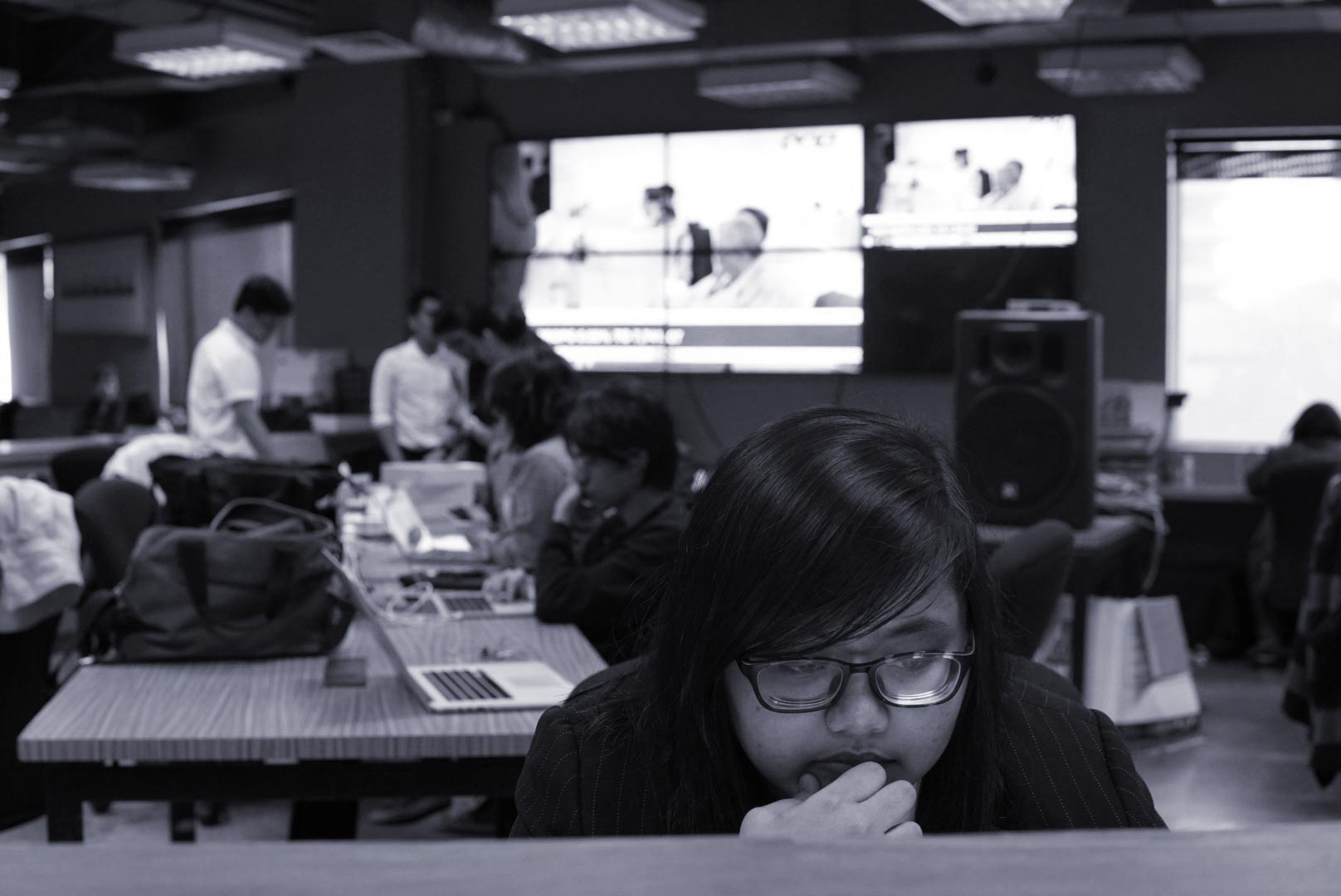
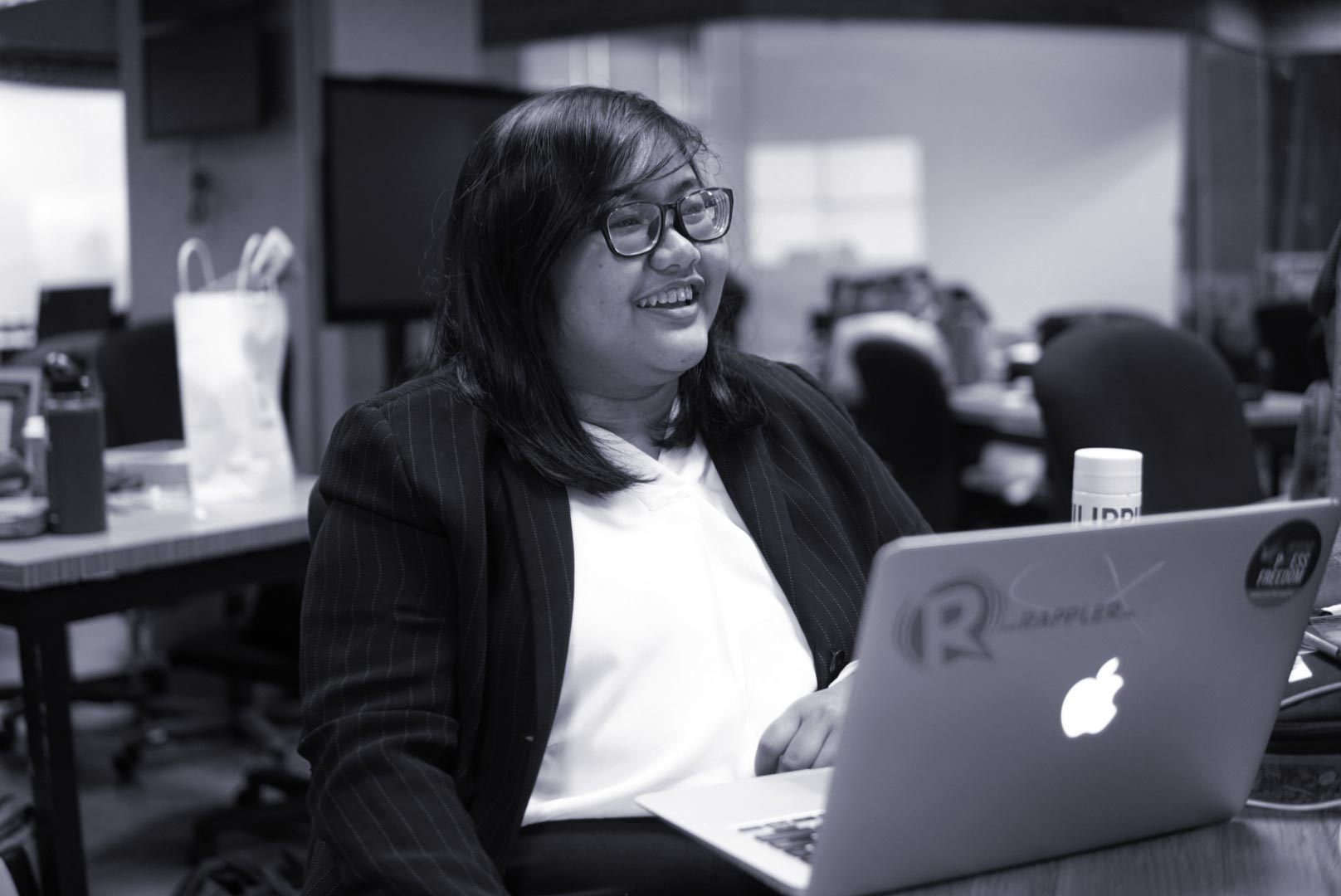
It’s worst right now … before, the attacks focused on one’s credibility – they [trolls] would say you’re a paid hack. Of course, that is still happening today. But not the rape threats, not the physical threats
Jodesz Gavilan, Rappler reporter
Ressa was arrested several times over these complaints. In February 2019, she was detained by the National Bureau of Investigation for cyber libel over a story that was published months before the law that it supposedly violated was passed.
Like Gloria, Ressa refused to buckle to administration pressure, insisting that press freedom is a right and must be guarded under a democratic society.
Carlos Conde of Human Rights Watch said last March that the cases against Ressa and members of her board are “unprecedented and speaks volumes of the Duterte administration’s determination to shut the website down for its credible and consistent reporting on the government.”
He added that the “persecution of government critics [are] unseen since the time of the Marcos dictatorship.”
On top of the string of cases, Ranada was banned from covering the presidential palace and events under the Office of the President. The ban came on the heels of a Senate investigation on a controversial frigate deal in early 2018, where Duterte’s right hand man had been implicated. Aside from Ranada, her colleagues at Rappler have been kicked out from coverage events at least seven times.
In April 2019, Rappler asked the Philippine Supreme Court to end the ban against the online media firm, with Ranada believed to be the first reporter to be denied access to Malacañang Palace since the Marcos dictatorship. Conde said her ban “could portend a broader assault on journalists and news organisations, whose critical watchdog role has magnified the government’s poor human rights record”.
Despite this, the female reporters of Rappler remain undeterred.
“I’m fighting for the chance to push back against a bigger power that’s trying to define you,” Ranada, who is eight months pregnant, said.
“No matter how big Duterte can be, no matter how popular, or how much power he has, he doesn’t get to define who you are. And you can define that for yourself. So every article I write, everything I do as a journalist is my way of pushing back. Even if you say I’m not a legitimate journalist, that I’m a corrupt journalist – that’s not me. And you don’t get to say that about me,” she added.
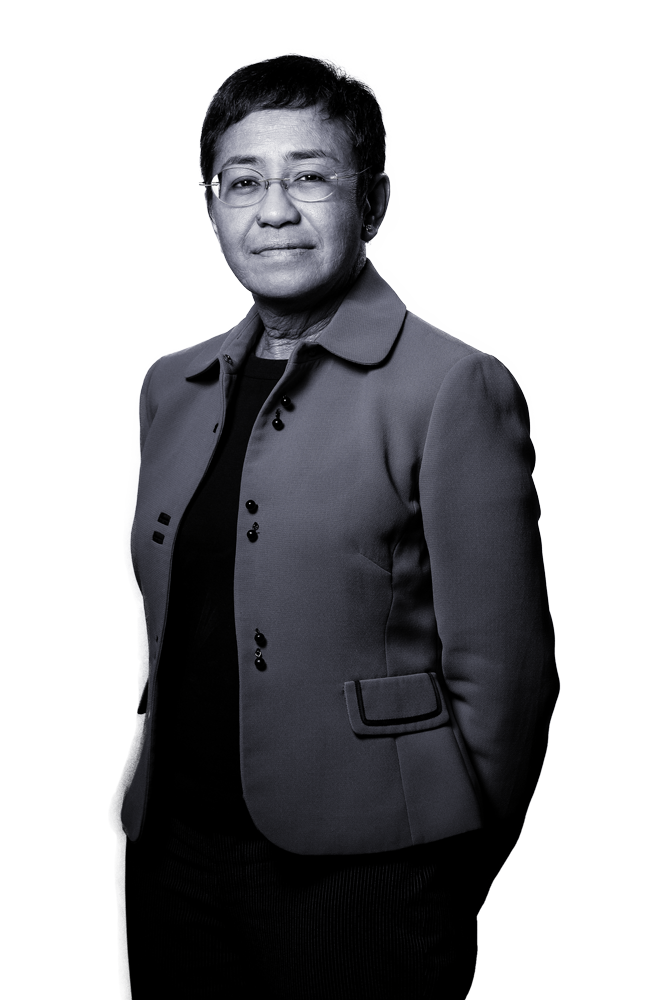
When Duterte used his SONA to attack Rappler, Gloria knew they had to prepare for the worst. Rappler, clearly, was in the line of fire and the president’s message to the whole bureaucracy was concrete.
“He was in effect telling the whole bureaucracy, the whole political elite, that Rappler is my enemy. And if you wanna please me, run after them,” Gloria said.
The hazards faced by journalists in the Philippines are not limited to sexual harassment of female journalists or criminal cases. Many risk their lives, with the Philippines the most dangerous place to be a journalist in Asia in 2017.
Gloria said that they could have chosen to tone down their stories, to soften them a bit. But Rappler held the line. Softening and succumbing to pressure were not congruent with why the news site was founded in the first place.
Rappler also wants to continue serving its core audience, Filipinos who appreciate tough journalism. And then there’s the future generation – Gloria said Rappler wants to serve as a role model to remind the online generation of how courageous Filipino journalists have been historically.
“You have to remind them that this is the kind of journalism that Filipinos do. We are not cowards. Never. And it [journalism] has always played a hero in democratic transitions, and you don’t want to lose that. Rappler wants to be able to tell the world that this is us,” Gloria said.


